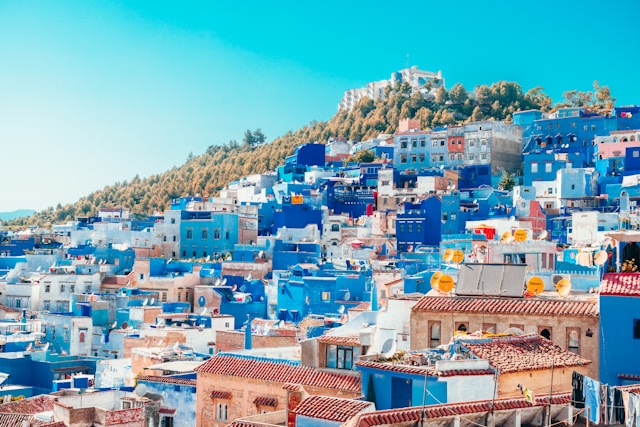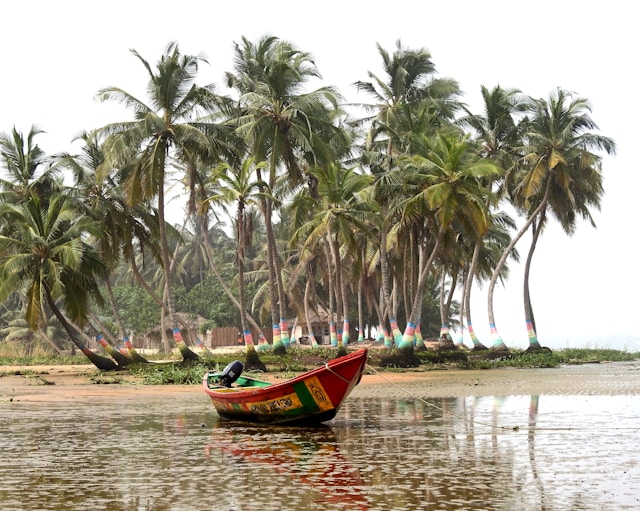
Africa appeals to students with its rich history and vibrant cultures. The continent offers experiences that textbooks can't teach. From ancient pyramids to bustling markets, every corner tells a story!
Student travel to Africa has grown in recent years. Young people want real experiences, not just tourist photos - they seek to understand different ways of life and challenge their own views.
Planning a cultural trip takes careful research and organization. Many students juggle heavy coursework while preparing for these adventures, which can make it tough to balance both priorities. That’s why some rely on trusted services like Essaypro Canada to manage their academic workload. Adam Jason from Essayspro explains that students often seek extra support during travel planning seasons, freeing them up to focus on building meaningful cultural connections and enriching experiences abroad.
Morocco sits at the crossroads of Africa and Europe. This location creates a unique blend of cultures that fascinates visitors. The country offers students a perfect introduction to African culture.
Marrakech's medina buzzes with activity. Students can practice their Arabic or French while shopping for spices. The city's Riyadh guesthouses provide authentic accommodation at student-friendly prices. Many offer cooking classes where visitors learn to make tagine and couscous.
Fez contains the world's oldest university. Students studying history or religion find this city especially meaningful. The narrow streets hide centuries-old workshops where craftsmen still use traditional methods. Leather tanners, metalworkers, and textile weavers welcome curious visitors.
The Atlas Mountains offer hiking adventures. Berber villages provide homestay opportunities. Students learn about rural life while helping with daily tasks. These experiences create lasting bonds with local families.
South Africa's history shapes its present in powerful ways. Students studying politics, sociology, or human rights gain deep insights here. The country's struggles with apartheid and its peaceful transition inspire many visitors.
Cape Town combines natural beauty with urban culture. Table Mountain provides stunning views, while the V&A Waterfront offers shopping and dining. Robben Island, where Nelson Mandela was imprisoned, delivers emotional education about freedom and justice.
Township tours reveal daily life for many South Africans. Students should choose responsible tour operators who share profits with communities. These visits challenge assumptions and create empathy.
Johannesburg tells the story of gold and conflict. The Apartheid Museum provides essential context for understanding modern South Africa. Students often describe this visit as life-changing.

Ada, Ghana (https://unsplash.com/photos/red-boat-on-body-of-water-near-green-palm-trees-during-daytime-zCAh6tOWFt8 )
Ghana earned its nickname as the "Gateway to Africa" for good reason. The country offers political stability and English as an official language. These factors make it ideal for first-time visitors to Africa.
Accra's markets overflow with colorful fabrics and local art. Students can learn traditional drumming and dancing. The National Theatre hosts performances that showcase Ghanaian culture. Local universities often welcome international students for short-term programs.
Cape Coast's slave castles provide sobering education about the Atlantic slave trade. These UNESCO World Heritage sites help students understand this dark chapter in human history. Many African-American students find these visits especially meaningful for connecting with their heritage.
Kumasi serves as the heart of Ashanti culture. The royal palace museum displays artifacts from one of Africa's most powerful historical kingdoms. Students learn about traditional governance systems that still influence modern Ghana.
Rural villages offer homestay programs. Students help with farming, teaching, or construction projects. These experiences show the real challenges facing rural Africa.
Kenya combines wildlife adventures with rich cultural experiences. The country's diverse ethnic groups create a tapestry of traditions and languages.
Nairobi serves as East Africa's hub. The city blends modern business with traditional markets. Students can visit the Karen Blixen Museum or explore the vibrant arts scene. The Nairobi National Park offers easy wildlife viewing just outside the city.
The Maasai people welcome visitors to their villages. Students learn about pastoralist lifestyles and traditional ceremonies. These interactions challenge Western ideas about development and progress.
Lamu Island preserves Swahili culture. The old town's narrow streets and traditional architecture transport visitors back centuries. Students can take Swahili language classes while exploring this UNESCO World Heritage site.
The Great Rift Valley provides geological wonders. Lake Nakuru's flamingos create spectacular sights. Students studying environmental science appreciate the region's diverse ecosystems.

Zanzibar
Tanzania offers incredible diversity in a single country. From Africa's highest mountain to historic Zanzibar, students find endless learning opportunities.
Mount Kilimanjaro attracts adventurous students. The climb requires no technical skills but demands mental strength. Many use the challenge to raise money for African charities. The experience builds confidence and provides unique perspectives on East African culture.
Stone Town in Zanzibar tells the story of the Indian Ocean trade. Arab, Persian, Indian, and African influences created unique architecture and cuisine. Students can explore spice plantations and learn about the island's role in the slave trade.
The Serengeti ecosystem supports the world's largest animal migration. Students studying biology or environmental science gain hands-on learning opportunities. Many conservation organizations offer volunteer programs.
Africa offers students transformative experiences that last a lifetime. The continent's cultures, histories, and peoples provide education no classroom can match.
Each destination teaches different lessons about human resilience, creativity, and community. Your African adventure will change how you see the world and your place in it!

Sara Essop is a travel blogger and writer based in South Africa. She writes about family travel and experiences around the world. Although she has been to 50 countries thus far, she especially loves showcasing her beautiful country and is a certified South Africa Specialist.